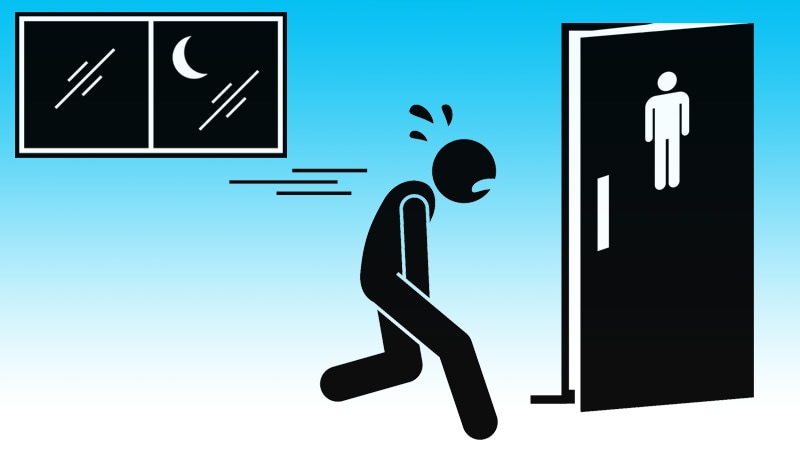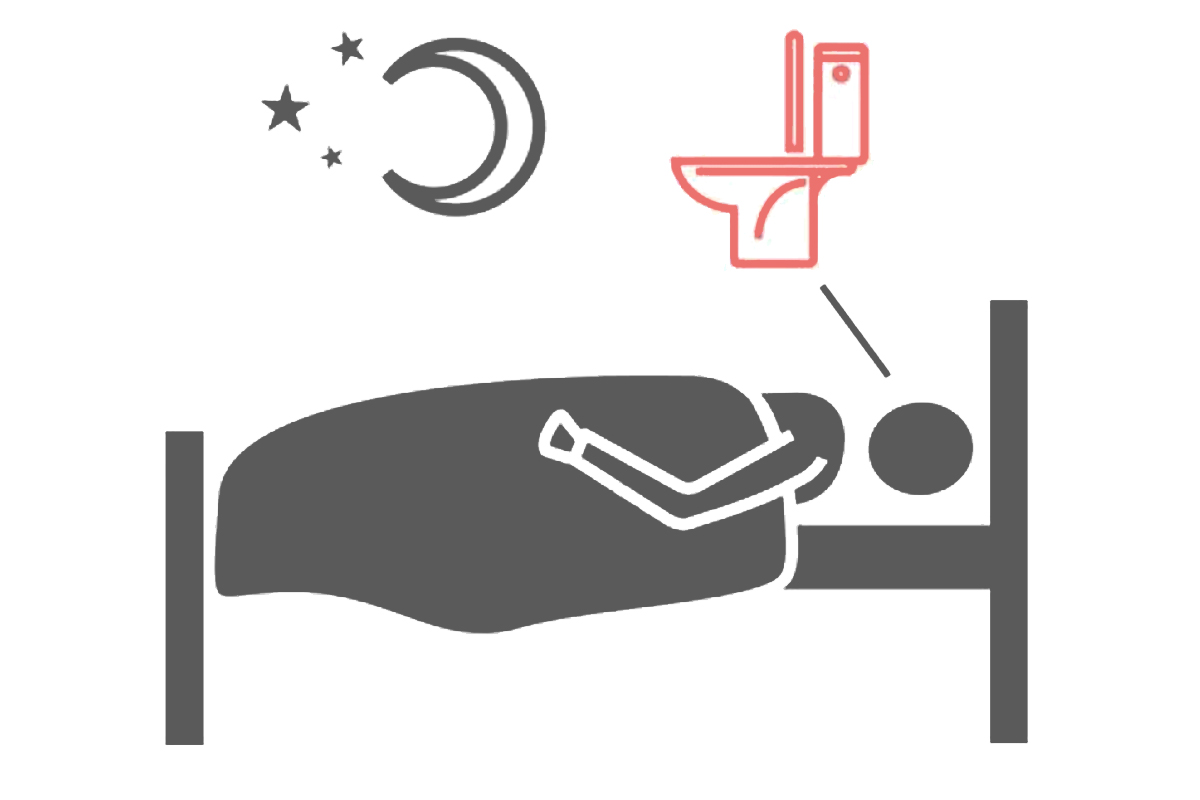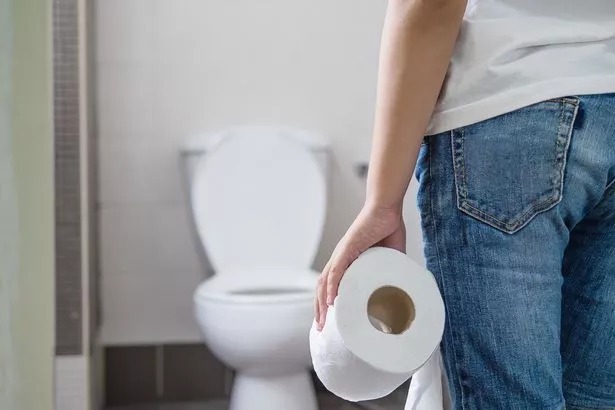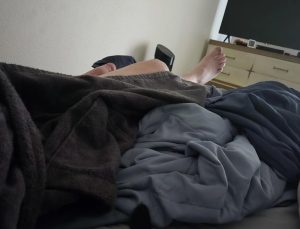HT6. Why waking up to pee at night might be a warning sign
Nocturia, or waking up multiple times during the night to urinate, is a common issue, but it shouldn’t be ignored. Around 50 million people in the U.S. experience nocturia, especially women aged 18-49 and men over 60. While the occasional trip to the bathroom at night may not be a concern, frequent waking during the night to pee can indicate an underlying health condition. Here’s what you need to know about nocturia and how to manage it effectively.
What Causes Nocturia?

Under normal circumstances, the body produces an antidiuretic hormone (ADH) during REM sleep to reduce urine production at night. However, when REM sleep is disrupted—due to factors such as stress, poor sleep habits, or certain medical conditions—ADH levels stay low. This results in more frequent urine production during the night, leading to the need to wake up and go to the bathroom. While nocturia can simply be a result of age-related changes or drinking too much water before bed, it could also indicate serious underlying health issues.
Health Conditions Associated with Nocturia

Waking up to pee several times during the night can be a sign of various medical conditions, including:
-
Overactive Bladder (OAB): This condition causes a frequent and sudden urge to urinate, especially at night.
-
Prostate Problems: In men, an enlarged prostate can affect urine flow and contribute to nocturia.
-
Diabetes: Both type 1 and type 2 diabetes can cause increased urination, especially at night.
-
Chronic Kidney Disease: Impaired kidney function can affect the body’s ability to concentrate urine, leading to more frequent trips to the bathroom.
-
Sleep Apnea: This condition, which causes breathing interruptions during sleep, can also increase nighttime urination.
Chronic nocturia can disrupt sleep patterns, leading to fatigue, irritability, and difficulty concentrating during the day. It can also affect your mood, memory, and overall health.
Tips for Reducing Nocturia and Improving Sleep

If you frequently find yourself waking up multiple times to use the bathroom at night, there are several lifestyle changes you can make to reduce the frequency of nighttime bathroom trips and improve your overall sleep quality.
1. Establish a Consistent Sleep Schedule
Going to bed and waking up at the same time each day helps regulate your body’s internal clock and supports better sleep quality. A consistent sleep routine can also help reduce nocturia.
2. Relax Before Bed
Engage in calming activities before sleep to help your body wind down. Consider reading, meditating, or taking a warm bath. Reducing stress and preparing your body for sleep can promote a more restful night.
3. Exercise Regularly
Regular physical activity is great for overall health, but try to avoid vigorous exercise close to bedtime as it may disrupt sleep. Aim for moderate exercise during the day to improve your circulation and help with better sleep.
4. Limit Caffeine and Alcohol
Both caffeine and alcohol are diuretics, meaning they increase urine production. Try to avoid consuming these substances in the hours leading up to bedtime.
5. Avoid Eating Before Bed
Eating late at night, especially heavy or spicy meals, can interfere with your digestion and disrupt your sleep. Try to finish eating at least two hours before bed.
6. Create a Comfortable Sleep Environment
Make sure your bedroom is a cool, dark, and quiet place. A comfortable sleep environment can improve sleep quality and reduce the likelihood of waking up to use the bathroom during the night.
7. Stay Hydrated, But Not Too Much Before Bed
While it’s important to drink enough water during the day, try to reduce fluid intake in the hour or two before bed to minimize the need to urinate during the night.
8. Limit Screen Time Before Bed
The blue light emitted from screens can interfere with your body’s natural sleep cycle. Turn off screens at least one hour before bedtime to improve the quality of your sleep.
When to See a Doctor

If you frequently wake up to pee at night, it’s important to take it seriously. Nocturia can be a sign of an underlying health condition that needs medical attention. Consult your healthcare provider if:
-
Your symptoms worsen or do not improve after making lifestyle changes.
-
The rashes spread quickly or affect sensitive areas, like the face.
-
Painful blisters or pus-filled sores develop.
-
Secondary symptoms such as fever or severe inflammation appear.
In some cases, your doctor may recommend tests to rule out conditions like diabetes, sleep apnea, or prostate issues. With early intervention and the right treatment, you can manage nocturia and improve your quality of life.
Conclusion
Waking up to pee at night, while common, should not be ignored, especially if it occurs frequently. It can be an indicator of an underlying health issue, and addressing it early can help prevent complications. By adopting healthy lifestyle habits, such as establishing a sleep routine, avoiding diuretics, and reducing stress, you can help reduce nocturia and improve the quality of your sleep. If symptoms persist, don’t hesitate to consult with your healthcare provider to get the proper diagnosis and treatment.













